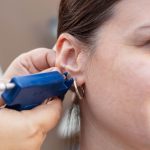
TUESDAY, Sept. 26, 2023 (HealthDay News) – A Pfizer plant that makes vital drugs, anesthesia and hospital supplies has restarted production after a 10-week shutdown. The plant, located in Rocky Mount, N.C., sustained severe tornado damage on July 19, when roofs were ripped off and medications tossed around. “This expedited restart is a proud achievement for the Rocky Mount team; however, it is only the first step toward full recovery for the plant, as Pfizer restarts production through a phased approach, with full production across the site’s three manufacturing suites anticipated by the end of 2023,” the company said in a statement issued Monday. “Production restart has been prioritized based on patient need and inventory levels. There are approximately 13 medicines in production on the lines that have restarted, including products that are currently available through Pfizer’s emergency ordering process,” the company added. “The first shipments of these medicines to distribution centers are anticipated in the fourth quarter of 2023. While manufacturing has resumed, it is important to note that some medicines may not be back in full supply until next year.” Most of the damage happened at the plant’s storage facility rather than its medication production areas, Pfizer said. The storage area contained raw materials, finished medications and packaging supplies, CBS News reported. Established in 1968, the Rocky Mount plant has more than 3,000… read on > read on >


















